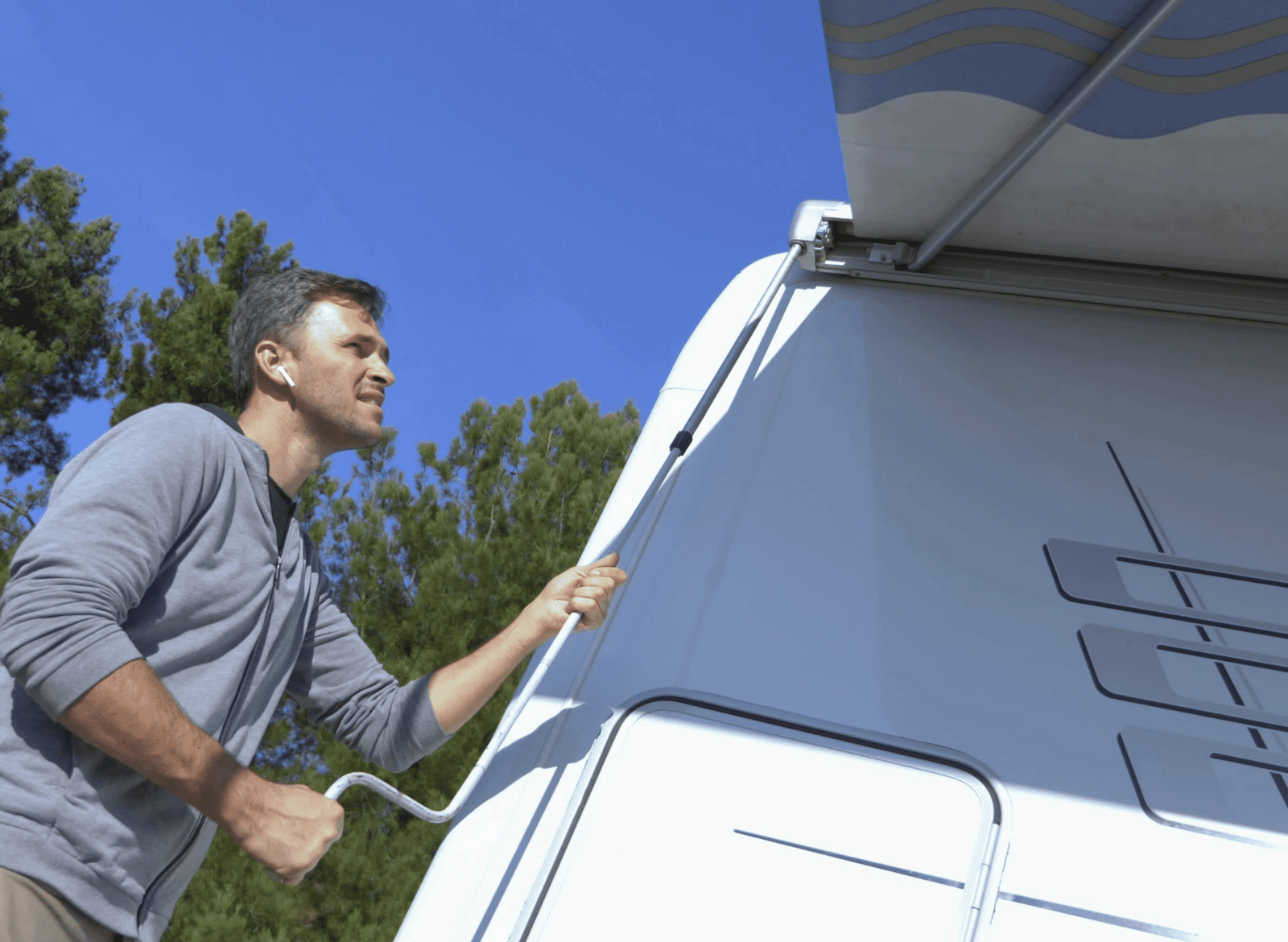If your vehicle has been parked up over the cooler months and you are prepping for your next journey, there are a few things to consider before you hit the road.
If your vehicle has been parked up over the cooler months and you are prepping for your next journey, there are a few things to consider before you hit the road.
Most people keep on top of servicing their vehicle if it has an engine (motorhome, campervan, or tow vehicle). However, your caravan or camper trailer needs to be serviced as well.
Regular servicing helps reduce the risk of accidents and possibility of your vehicle requiring major repairs. It may also extend the lifespan of your vehicle.
Servicing is not just based on the kilometres you travel. If your vehicle has been idle, it will still need its 12 monthly service. There are numerous factors to consider including the RV’s bearings, axles, and suspension. Also, if the vehicle has not been moving, neither have its parts, therefore the grease has not been able to lubricate as needed. The weather can also degrade seals, and these will also need to be checked.
Tyres degrade with age. If your tyres are over five years old, they need to be checked for degradation by a reputable tyre business each year. And once they have reached 10 years old, they need to be replaced regardless of the tread left.
The age of your tyre is printed on the tyre wall. Look for where text starts with “DOT”. The last four digits of the code represents the week and year the tyre was made. For example, 4922 is the 49th week of 2022.
Also check your tyre pressures before heading off. Too much or too little air causes uneven wear, reduces handling and grip, and shortens the life of the tyres.
Tyres on RVs typically carry more weight than standard vehicles which makes it even more important to have the correct tyre pressure. If you are unsure of your RV’s correct tyre pressure, you will find this information on the tyre placard of your rig.

Always check your batteries if your RV has been sitting idle for a while. It’s a good idea to plug your RV into power and let the batteries charge up.
Check and clean your solar panels. A clean solar panel will work better than a dirty panel.
Ensure that the mounts have not come loose. There have been cases where solar panels have come off an RV causing fatalities. Also check there isn’t any damage from trees or branches.
Ensure that all the lights are working on your RV. This includes headlights, blinkers, reverse lights, clearance lights and number plate lights. If you have a trailer, check the Anderson and trailer plugs for damage or corrosion. WD40 may help with the connections.
Check the date on your gas bottle. This will be stamped on the neck or base of the bottle. All cylinders have a service life of ten years.
Everyone should get their rig weighed to ensure you’re the vehicle is safe, compliant and insured! Even if you have had your vehicle weighed before, you may need to check it again. Have you added any accessories? Purchased any new equipment or toys? Are you packing your vehicle differently than previously? Any changes to your vehicle will count, so play it safe and get weighed.
It is also a good idea to make sure you have updated your insurance policy for any changes to your rig. This includes if you have had a GVM/GCM or GTM upgrade.